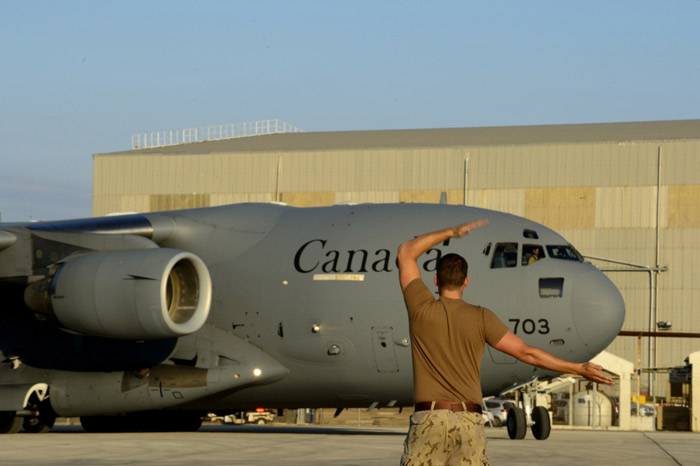The brutal nature of the Islamic State of Iraq and Syria (ISIS) became very clear this summer when videos of executions and beheadings were widely disseminated across the globe.In response to the growing threat the group poses to the Middle East and potentially the world, the U.S. is now leading a new coalition to quell yet another crisis in Iraq. In Canada, despite pointed opposition from the New Democratic Party (NDP) and Liberal party, Parliament voted 157-134 on Tuesday in favour of joining the coalition. Conservatives hailed the move and praised the prime minister for the supposedly strong and moral message it sent to the world. Despite the potential symbolic importance of the mission, the small size of Canada’s military commitment and a lack of a long-term strategy render the engagement pointless.
The force that the Conservative majority argued so vigorously to send, to purportedly defend Canada’s citizens and its reputation, is laughably small. The contingency includes six CF-18s and 600 soldiers serving in an advisory capacity, as well as some minor surveillance and refuelling planes. In comparison to the rest of the coalition, This force is negligible: The U.S. has committed an entire carrier strike group, hundreds of state-of-the-art planes and guided missiles, as well as 1,600 soldiers. Canada is not even one of the largest among the other small commitments sent by allies—Denmark, the Netherlands, France, the United Kingdom, Belgium, and Australia have all committed the same or more resources as Canada has.
The Canadian role in halting the threat—the main prerogative for intervention—will be minimal, and the threat to Canadian lives will only increase. ISIS is adept at stealing American military hardware, and the Iraqi military has already reported numerous losses of surface-to-air missiles. Sophisticated American built surface-to-air systems, looted from abandoned Iraqi military installations by ISIS, pose a direct threat to combat aircraft in the region. Make no mistake: Despite the miniscule nature of the force sent by Stephen Harper, Canadian lives are at risk for a mission with no foreseeable end.
The plan, voted on in the House of Commons, gives the military six months to strike ISIS militants before the plan must be voted on again. While this seems to be a stringent safeguard, it presents Canada with a tough choice in the future. The situation on the ground in Iraq is a mess, with many declaring that the country is irrevocably divided. Furthermore, the civil war in Syria will only continue as coalition forces are striking a mutual enemy of the Assad regime. There has been no suggestion that the situation will be resolved in six months’ time, meaning Canada will have to choose between continuing to engage in a prolonged war or retreating from its role, a reputation-damaging move that Harper is attempting to avoid in the first place with the intervention.
It should also be noted that Canadian citizens at home face much more danger now than they did prior to Tuesday. Harper sought to mitigate the minimal threat Canada faced by directly provoking the aggressor. It was a boldly symbolic move, but symbols matter little. Furthermore, it’s been reported that more than 6,000 people have joined ISIS since America launched its first strike. Intervention in this case only inspires further continuation of the conflict and bolsters ISIS’s ranks.
If Harper really wanted to alleviate the threat without invoking these risks, he could have supported humanitarian efforts in the region, provided supplies and equipment to Allied forces, and invoked diplomatic efforts to support moderate Sunni groups in the region.
While it can be argued that Canada cannot ignore the threat presented by ISIS, sending a small military force puts lives at risk for a mission that lacks forethought and risks dragging the country into yet another quagmire in Iraq.










I’m not sure how 600 Canadian troops vs 1600 US troops is underserving given the population difference. However there’s a bigger picture at play that is more chicken and egg. Canadians become at risk by becoming involved…not by staying away. This is what ISIS is fighting against — foreign intervention. Our Canadian prime minister was not in favor of Iraq invasion in early 2000s because the destabilization would give rise to groups like ISIS who would take aim specifically at the countries that meddle in their affairs. The current national opposing party proposes we stay out of it and involve ourselves in a humanitarian way http://www.cbc.ca/news/politics/isis-justin-trudeau-s-iraq-position-backed-by-jean-chr%C3%A9tien-1.2802461 We are only getting involved in a more token way to support our US ally to the extent we are asked…vs…trying to assert some independent agenda whether it be short term or long term.
Do these articles even get edited? Either they don’t, or whoever edited this was illiterate.